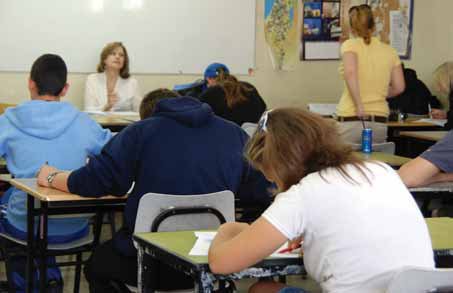
12th grade students taking the English written bagrut eam, at Shevach Mofet School, Tel Aviv.
Shevach Mofet High School in Tel Aviv is also known as the Russian school. Some 70 percent of the teaching staff are from the former Soviet Union and I would estimate that at least 99 percent of the students can lay claim to the same background.
I've been tutoring English at Shevach for seven years in the Esra program which is aimed at helping students in the oral bagrut program that they must complete before graduation.
In the time I've been tutoring at the school I've only come across two boys who had no previous connection with Russia and were studying there because of its excellent reputation in computer sciences and robotics. They were definitely an anomaly.
In the way of background, Shevach, as a technological high school had a terrible reputation until 1992 and the Ministry of Education was considering closing down the facility because of lack of interest by students and teachers. The principal at the time had a stroke of genius, went to the powers that be in education and came up with a solution that would make this one of the best schools in the country for science and math. She proposed that she be able to reach into this huge pool of new immigrant teachers from Russia and pick those she felt would be good teachers in all disciplines and allow them to teach in their native tongue. This would continue for a four year period during which the new teachers would study Hebrew and eventually teach science, math, computer skills, robotics, psychology and criminology in Hebrew.
I've become so impressed by the diligence and work ethic of the students at Shevach, most of whom tell me that they study at school for an average of eight hours a day. When I ask about hobbies or what they do with spare time, they almost always answer with "who has spare time?"
Most of the boys I've met are either in the computer program or major in robotics. Most girls major in psychology and criminology and others in accounting. The robotics majors all have a project that they must complete in 11th grade and I'm curious about what they've done and am usually impressed once I get them to talk about the work. I've met dozens of boys who have competed in international competitions and each time Shevach has been near the top. Once they built a robot using components acquired from NASA in the US and built a basketball shooting robot which, when tried out at Yad Eliyahu, worked perfectly. The army has recognized the skills of these bright youngsters and chooses many of the boys to continue working while in the IDF, either in computers or something to do with robotics.
Even in the English department which I have grown to know well, there is a toughness, and demands are made on the students that come from caring and wanting only the best, but there is little sympathy for any lack of direction. The teachers expect the students to work hard and meet the highest standards. Those students who can't meet these criteria are kicked out, it's as simple as that. Those students who do not live in Tel Aviv, and this is the vast majority, must pay for tuition or are on some sort of scholarship.
I've developed a rapport with the teachers who greatly appreciate my volunteerism. A few of those of Russian background call me Mutyishka which I'm told is a term of endearment. I like it and it suits me nicely.
In my experience, even though most of the students had been studying English at least since seventh grade when they entered Shevach, almost none have ever had a conversation in English except for the few times they are called on in class. And in some cases the English teacher may speak to them more in Hebrew than English. So the experience with me is completely new for them. The majority of students I've met enjoy using their English skills with me even if they are nervous. Of course this isn't always the case and for some it's very painful.
English bagrut and study is divided into three, four or five point courses with five being the highest level and more demands made upon the students. Almost all of the five point students have an excellent command of English and even if they have difficulty speaking, with just a little prompting, I can get them to open up and use the hidden skills that are there. I never see any three point students since their level is just too low to communicate.
This year I worked only with four point students and it was much harder. I also have tremendous sympathy for those students who are new immigrants and have only been in the country three years or less. In some cases they do get extra help but can you imagine how hard it is for a youngster to be thrown into an environment where they must learn computer skills, math, robotics, physics, Hebrew literature and Bible in a language they barely know. No matter how bright they are, invariably I've found that these immigrants are having difficulty in English, Hebrew literature and Bible, which are all language related. These kids also don't have anyone at home who can help them, since in many cases their parents barely speak Hebrew. I often hear that they are doing okay in the sciences and math but it is still very difficult and life is generally hard.
The teachers are often concerned about my welfare and ask whether I've ever had confrontational students. I haven’t. I've had students who are reticent or surly but never aggressive. This year I remember a young man who was so sullen I asked him if he didn't want to be with me and would prefer to leave. It turned out he wasn't doing well in English but did speak well, and after a few minutes blurted out that he hadn't prepared an English report which is a requirement of the Ministry of Education. After some prompting I got him to come up with four or five subjects that interested him and spelled out for him how easy it would be using his computer skills to prepare the three or four page typed report that is required by the teacher and the Education Ministry. At the same time he'd get his parents off his back. He went out a little happier than he'd come in and I hope he followed up on what we talked about. I think he's a nice boy and the sullenness was the result of his unhappiness with his chosen major field of study, and insecurity.
Several years ago I met a very bright and charming young man whose major field of study was computers. He had set up a software company and was successfully producing and selling software through the internet to companies all over the world. He was so successful that he had five fellow students working for him and all were doing well financially from his venture. I asked him how he felt about going into the army and he said he didn't mind, but it was going to cost him a lot of money.
I always begin my interviews with a question about how long they've been living in Israel. I ask if they still have family in Russia, what their parents do, whether they've been back to the old country and how they feel about living in Israel. I'm always amazed at how honest and open these kids are, even though this is the first time we're meeting. I had one boy who opened up his soul to me about problems he was having and then waited for me outside until I had finished working with the other students. He asked me not to tell his teacher any of what he had revealed. I told him that other than any problems he was having in English, what we spoke about was strictly between us. It is interesting that some of the teachers ask about the students and how they're doing and others don't bother at all.
On several occasions I've met with large groups of students and they're more interested in me and why I came on aliyah and my family situation. The teachers have told me that most of the students and Russian immigrants generally live very isolated existences and have little connection with Israelis and the society in general outside of their Russian friends and acquaintances. I was made aware of what an insular society they live in just by walking around the halls and hearing only Russian spoken in almost all cases. Outside of class the students speak to the teachers in Russian. Even those students who have lived in Israel for ten years or more tell me that at home they speak only Russian, their parents watch only Russian TV channels and read only Russian newspapers. It is probably one of the most insular self imposed ghettos in the world.
On those occasions when I get to talk to a group of students, in addition to my own story I always try to give them a feel for the beauty of Israel and tell them they should venture about the country and take trips to HaYarkon park to see the flowers, birds and natural beauty that is so close and available to them. Because of their isolation they often haven't had an opportunity or don't even know about the natural beauty and wonders of this small country.
I've met an inordinate number of students who have come with a single parent or grandparent and have no ties with a father or with other family member who remained in Russia. Most tell me frankly that they don't care and have lost any feelings for their biological parent or family they've left behind. Usually the parent left behind was not Jewish.
I also find that in many cases when a parent is working here as a security guard or in a supermarket or a clothing store, if I ask what they did in Russia, it turns out that they were professionals, maybe doctors, dentists, musicians or teachers. It's usually a combination of language skills and age that keeps them from working in their previous fields.
I can't say all of those I've met at Shevach are happy about being in Israel or even like it here. It does hurt me and I'd like it to be different. I do try and show them another side and ask them to at least give the country and its people a chance. I don't know how successful I've been and hope they've had better experiences after the army than they have until now. All in all, the experience for me has been a joy and I've gained far more from it than I've given.
If anyone reading this is new to Esra or is looking for a volunteer experience that is worthwhile, rewarding and really not too difficult, I highly recommend the English oral bagrut program. It exists in most cities in which Esra has groups. In Tel Aviv the oral bagrut program includes some 15 high schools throughout the city.
I've worked at three other high schools in the Tel Aviv area and found all of them to be rewarding and the students just as open and interesting, but for me Shevach has a special place in my heart.
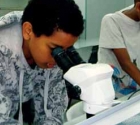 Visit to Michmoret Research Center - Gifted Children's Project
Visit to Michmoret Research Center - Gifted Children's Project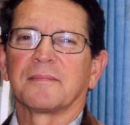 Esra Kfar Saba Meets Our New Deputy Mayor
Esra Kfar Saba Meets Our New Deputy Mayor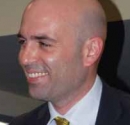 Another glorious evening with pianist Gil Shochat
Another glorious evening with pianist Gil Shochat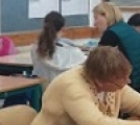 A Funny Thing happened
A Funny Thing happened 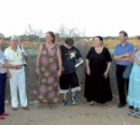 a village for young people with special needs
a village for young people with special needs NETANYA NEWS
NETANYA NEWS 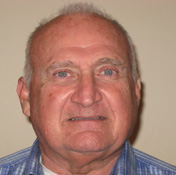 Motti Zaslow
Motti Zaslow